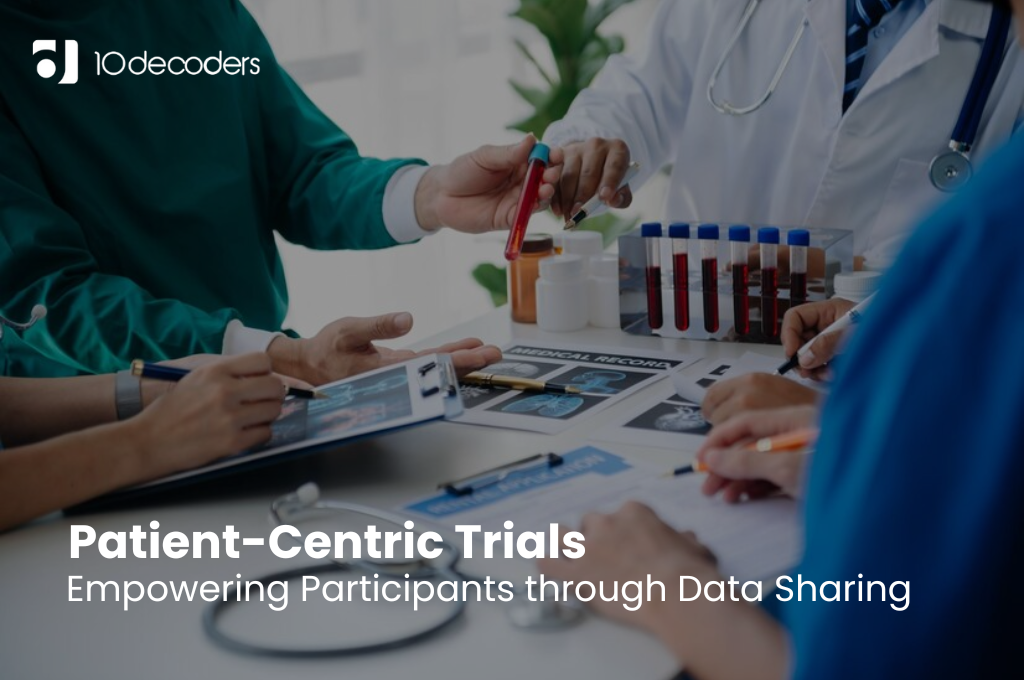Patient-Centric Trials: Empowering Participants through Data Sharing
The landscape of clinical trials is undergoing a fundamental shift, moving away from one-size-fits-all studies towards a more patient-centric approach. At the heart of this shift lies data sharing and interoperability – empowering participants with control over their information and fostering a collaborative environment that benefits both research and individual well-being.
Rethinking the Paradigm: From Participants to Partners
Traditionally, clinical trials have viewed participants as subjects – passive contributors whose data is collected and analysed by researchers with limited involvement. This approach often overlooks the wealth of insights and experiences participants bring to the table. Patient-centric trials aim to reverse this dynamic, positioning participants as active partners in the research process.
Key pillars of this patient-centric approach include
- Transparency and informed consent: Providing participants with clear and accessible information about the study, its risks and benefits, and how their data will be used. This fosters trust and empowers participants to make informed decisions about participation.
- Data ownership and control: Recognizing participants’ right to own and control their data, allowing them to decide what information is shared, with whom, and for what purposes. This puts the power in the hands of participants and reinforces their trust in the research process.
- Enhanced communication and collaboration: Building open lines of communication between researchers, participants, and their healthcare providers. This ensures participants are kept informed about the study’s progress and have a platform to share their experiences and concerns.
Data Sharing and Interoperability: The Engines of Empowerment
Data sharing and interoperability lie at the core of empowering participants in patient-centric trials. By breaking down data silos and enabling secure, controlled access to their medical information, participants can
- Contribute to a holistic understanding of their health: By sharing data from various sources – clinical trial data, electronic health records, wearable devices – participants can contribute to a richer, more comprehensive picture of their health condition and its response to treatment. This deeper understanding can lead to personalised care plans and improved clinical outcomes.
- Participate in research beyond immediate trials: Sharing their data anonymously with larger research repositories allows participants to contribute to a broader understanding of their disease, potentially aiding in future research endeavours even if they don’t meet the specific criteria for a particular trial. This knowledge can benefit future generations of patients with similar conditions.
- Make informed healthcare decisions: Having access to and control over their own data empowers participants to make informed decisions about their care, in consultation with their healthcare providers. This shared data-driven approach fosters a collaborative care environment and enhances patient autonomy.
Interoperability: Building Bridges for Seamless Data Exchange
Enabling secure and seamless data exchange is crucial for maximising the benefits of data sharing and interoperability in patient-centric trials. Here’s where standardised data formats and interoperable platforms come into play.
- Standardised data formats: Initiatives like FHIR (Fast Healthcare Interoperability Resources) are paving the way for standardised data formats across healthcare systems and research organisations. This common language eliminates data silos and facilitates seamless data exchange between diverse platforms.
- Interoperable platforms: Secure cloud-based platforms enable authorised access to participants’ data from various sources, allowing researchers, healthcare providers, and even participants themselves to access and analyse relevant information in a controlled and secure environment.
Challenges and the Road Ahead: Paving the Way for Shared Success
Implementing data sharing and interoperability in patient-centric trials presents certain challenges
- Data privacy and security concerns: Ensuring robust data security measures and adhering to stringent privacy regulations are paramount. Building trust with participants requires transparent data governance practices and clear communication about data usage.
- Technological infrastructure and expertise: Implementing and maintaining interoperable platforms require investment in technology and personnel training. Collaboration between healthcare providers, research institutions, and technology companies is key to overcoming this hurdle.
- Participant trust and engagement: Building trust and encouraging participants to share their data require ongoing communication, education, and support. Demonstrating the tangible benefits of data sharing and ensuring participants see themselves as true partners in research are crucial for fostering engagement.
Despite these challenges, the potential benefits of patient-centric trials powered by data sharing and interoperability are undeniable. By prioritising participant empowerment, ethical data governance, and technological advancements, we can pave the way for a future where clinical trials are not just about finding new treatments, but about improving the lives of those who participate in them. This collaborative approach not only holds the promise of accelerating medical breakthroughs but also paves the way for a more patient-centric healthcare system where individuals are empowered to take control of their health and contribute to advancements in medical science.
Conclusion
The future of clinical trials lies in embracing a patient-centric approach, where participants are not just subjects but empowered partners in the research process. Data sharing and interoperability play a critical role in this transformation, giving participants control over their information and enabling them to contribute to a deeper understanding of their health and disease. This empowered participation, powered by secure data exchange, holds the potential to revolutionize clinical research. It can lead to personalized treatment plans, accelerate medical breakthroughs, and ultimately, create a healthcare system where patients are valued partners in their own well-being and the advancement of medical science.



